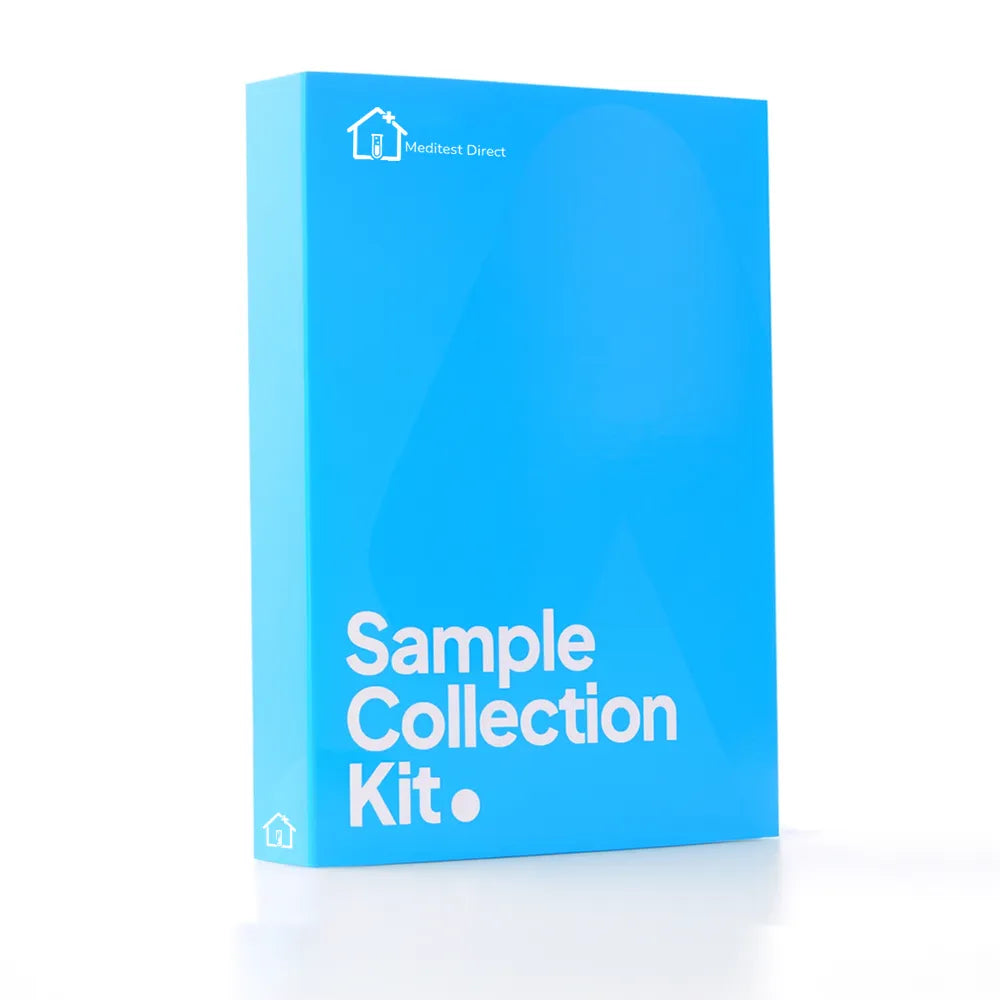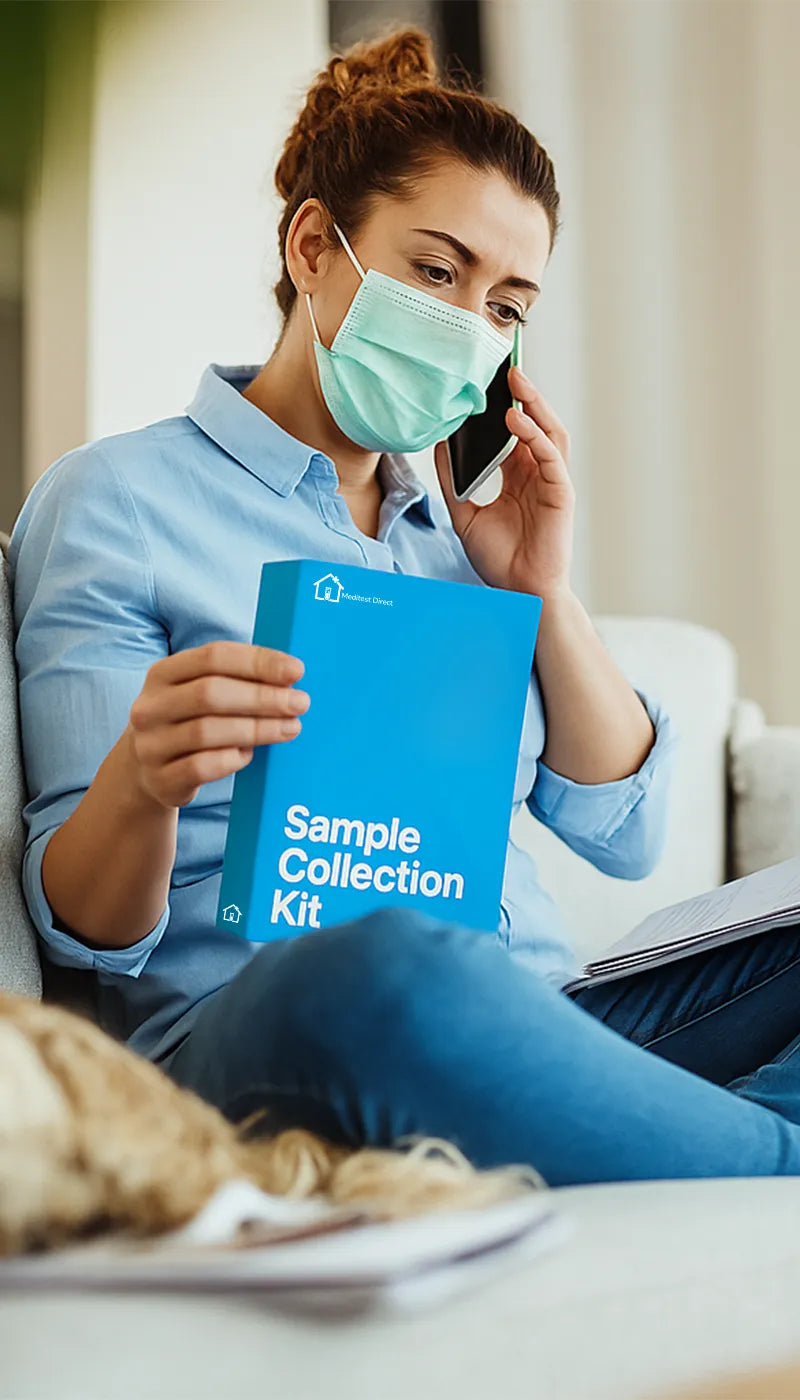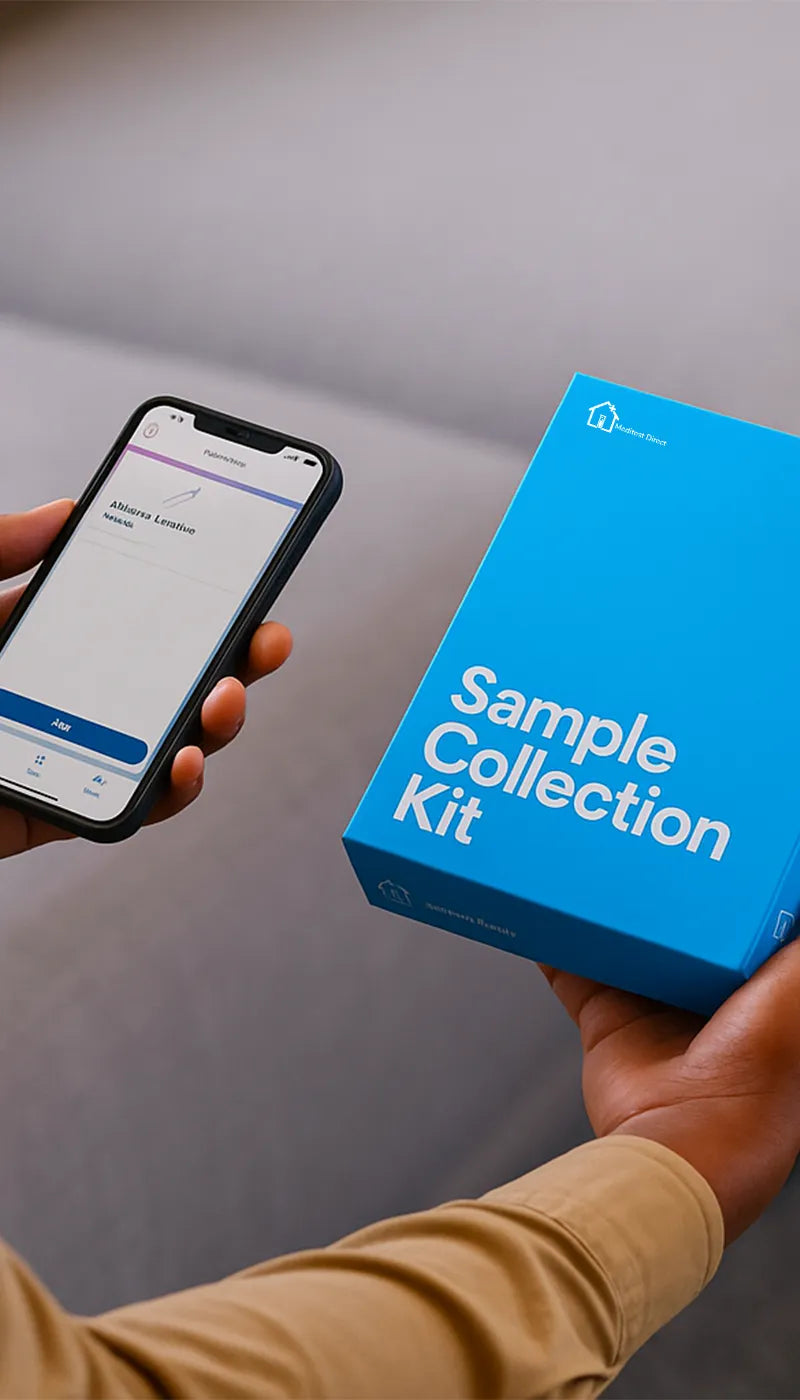Explore Our Most Popular Tests.
What’s in the box
- Sperm collection container
- Detailed instructions for sample collection
- Prepaid return envelope for laboratory analysis
- Discreet packaging for privacy

This product is a home blood test kit that measures IgG antibodies against measles, mumps, and rubella. It helps determine whether your immune system has protective immunity—either from past infection or vaccination—to these conditions, which can be important for travel, pregnancy planning, or assessing overall immunity.
Confirms immunity status to measles, mumps, and rubella in one test
Useful for those with uncertain vaccination history, preparing for pregnancy, or entering risk scenarios
Helps decide whether booster vaccination or additional precautions are necessary
Convenient at-home sampling with immunology lab analysis
A positive IgG result generally indicates immunity, but does not guarantee 100% protection
A negative or borderline result suggests you may not be immune and might consider vaccination
This test is for informational use only and not a definitive diagnostic tool
Results should be reviewed with a qualified healthcare professional
All samples are processed by accredited immunology laboratories
At MeditestDirect, we offer a wide range of trusted home testing kits from general health and wellness to more specific medical checks. Whether you're monitoring your body or taking control of your health journey, we've got a test that fits. Your results are processed securely and kept completely confidential, giving you peace of mind every step of the way.




With MeditestDirect, you're in control. Choose from a full range of easy-to-use home test kits, all designed to give you accurate results without the wait. From everyday check-ups to targeted health concerns, every test comes with full privacy and secure result delivery—because your health information should stay yours.

Explore Our Most Popular Tests.
Rubella is a viral infection otherwise known as German Measles. The virus causes a red rash and flu-like symptoms and although the virus is usually harmless, if a woman gets rubella in the first three months of her pregnancy, serious birth defects or a miscarriage may occur.
This test measures IgG antibodies to the measles virus which will tell you whether or not you are immune to measles. A result above a certain level will be reported as positive which means that you are immune to measles. Your result can also be reported as equivocal (which means that antibodies have been detected but they are not at a level where immunity is certain) or negative, which means that you are not immune to measles. Measles is a contagious disease which is spread through coughing and sneezing. Measles causes symptoms such as a runny nose, cough and fever, red, light-sensitive eyes and small whitish spots on the inside of the cheeks. After a few days, a rash will develop. Measles often passes without incident, but in some cases serious complications such as pneumonia and encephalitis (swelling of the brain) can develop. Immunity to measles is acquired through being vaccinated or as a result of having recovered from a previous infection. Once you are immune you are unlikely to catch measles again or pass measles onto another person. Health care workers may be required to prove immunity to measles by their employer.
This test measures the level of IgG antibodies to mumps in your blood which will tell you whether you are immune to mumps. A result above a certain level will mean that your result is positive and you are immune to mumps. If your antibodies are below this level then your results may be reported as equivocal (where immunity is not certain) or negative which means that you are not immune to mumps. Mumps is a contagious viral infection which is spread through coughing and sneezing. It causes symptoms such as headaches and joint pain, as well as the characteristic swelling of the parotid salivary glands just below the ears. Some individuals will also experience swelling of the testicles and ovaries, and it can cause viral meningitis in a minority of cases. Immunity to mumps can be acquired through vaccination or from having recovered from a previous infection. Immunity means that you will not catch mumps and neither can you spread mumps to another person. Health care workers may need to prove their mumps immunity to their employer.